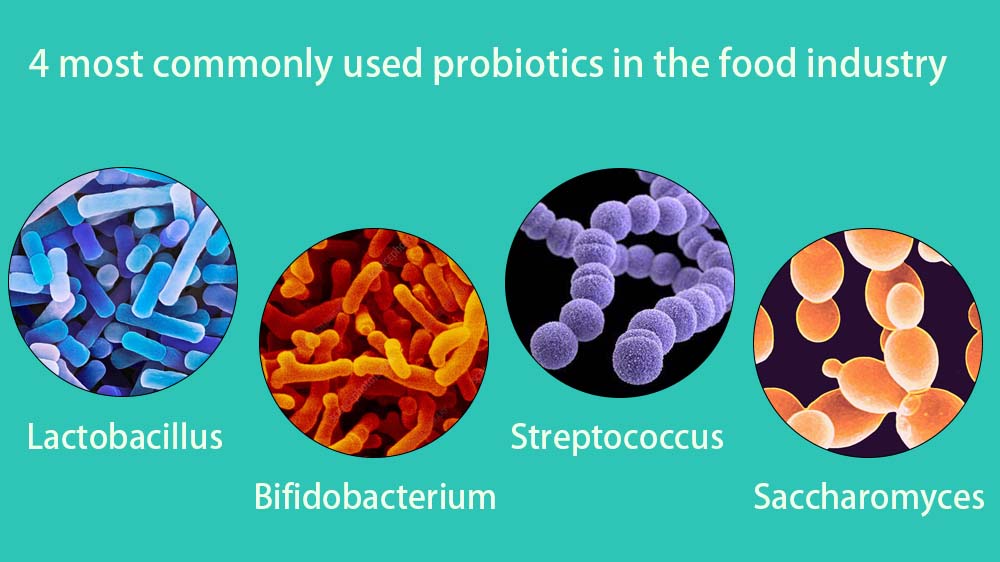4 most commonly used probiotics in the food industry
Introduction
Probiotics have gained significant attention in recent years, thanks to their numerous health benefits. As more people prioritize their well-being and seek natural alternatives, the demand for probiotic-infused products has skyrocketed. This surge in interest presents an excellent opportunity for food manufacturers to tap into this growing market.
1. Understanding Probiotics
Probiotics are live microorganisms that, when consumed in adequate amounts, confer health benefits to the host. These beneficial bacteria and yeasts are commonly found in fermented foods, such as yogurt, sauerkraut, and kefir. They work by promoting a healthy balance of gut bacteria, supporting digestion, enhancing nutrient absorption, and boosting the immune system.

2. Classification of Probiotic Strains
- Lactobacillus: Lactobacillus strains are among the most well-known and extensively researched probiotic bacteria. They are commonly found in dairy products and play a crucial role in maintaining gut health. Lactobacillus acidophilus, Lactobacillus rhamnosus, and Lactobacillus casei are popular strains with proven benefits.
- Bifidobacterium: Bifidobacterium strains dominate the lower part of our gastrointestinal tract and are essential for a healthy digestive system. Bifidobacterium breve, Bifidobacterium longum, and Bifidobacterium bifidum are commonly used strains known for their positive impact on gut health.
- Streptococcus: Streptococcus thermophilus and Streptococcus salivarius are less common probiotic strains but have gained recognition for their contribution to oral health and immune system support.
- Saccharomyces: Unlike bacterial strains, Saccharomyces strains are probiotic yeasts that offer unique benefits. Saccharomyces boulardii, for instance, aids in the prevention and treatment of various gastrointestinal disorders.
3. Targeted Health Benefits
Different probiotic strains offer varying health benefits, which can be appealing to food manufacturers looking to create specialized products. For example:
- Immune support: Lactobacillus casei and Bifidobacterium lactis are known to strengthen the immune system, making them suitable for fortifying functional foods for immune health.
- Digestive health: Lactobacillus acidophilus and Bifidobacterium breve can be emphasized for their positive impact on digestive health, aiding in maintaining a healthy gut microbiome.
- Women’s health: Certain strains, such as Lactobacillus rhamnosus and Lactobacillus reuteri, have shown potential in promoting women’s urogenital health, making them ideal for manufacturers focused on female-targeted products.
4. Quality Assurance and Safety
Food manufacturers prioritize safety and quality when selecting ingredients for their products.
A reliable probiotic suppliers like Xueling Biotech, that have all the required certificates such as Good Manufacturing Practices (GMP), International Organization for Standardization (ISO), Food and Drug Administration (FDA) and so on, would be your wise choice.
Conclusion
In an era where consumers increasingly value their well-being, probiotics have emerged as a sought-after ingredient in the food industry. More and more manufacturers will likely recognize the value of incorporating probiotics into their product range, leading to fruitful collaborations and increased availability of probiotic-infused options for health-conscious consumers.

